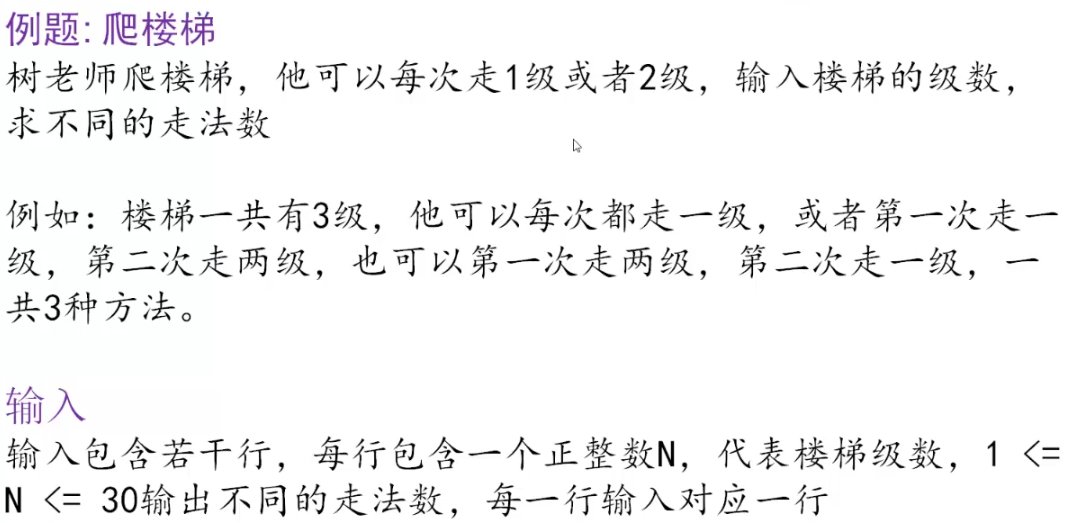转载请注明出处:http://www.cnblogs.com/zhishoumuguinian/p/8342382.html

思路:爬上最后一节台阶有两种情况,第一种走一级上到最后一节台阶,第二种走两级上到最后一节台阶。于是,所有的上台阶走法我们可以分解为上n-1级台阶的走法(第一种情况)加上n-2级台阶的走法(第二种情况)。于是有了递推式f(n)=f(n-1)+f(n-2),而递推的结束条件为n=1时 f(n)=1; n=2时, f(n)=2。
方法一:递规
1 #include<iostream> 2 3 using namespace std; 4 int fstep(int n) 5 { 6 if(n==1) 7 return 1; 8 if(n==2) 9 return 2; 10 if(n>=3) 11 return fstep(n-2)+fstep(n-1); 12 return 0; 13 } 14 int main() 15 { 16 int n,step; 17 cout<<"input the steps of the stair:"<<endl; 18 cin>>n; 19 step=fstep(n); 20 cout<<"The methods to finish the stair are: "<<step<<endl; 21 return 0; 22 }
方法二:动态规划
1 #include <iostream> 2 #include <string.h> 3 using namespace std; 4 int step[1005];//设置一个数组保存计算过的n 节台阶上法,避免重复计算 5 int fstep(int n) 6 { 7 if(n==0) 8 step[n]=1; 9 if(n==1) 10 step[n]=1; 11 if(step[n]==0)//如果n节台阶没被计算过,执行下列语句,已经被计算过了,直接返回就可。 12 step[n]=fstep(n-1)+fstep(n-2); 13 return step[n]; 14 } 15 16 int main() 17 { 18 int n; 19 memset(step,0,sizeof(step)); 20 cout<<"input the steps of the stair:"<<endl; 21 cin>>n; 22 cout<<"The methods to finish the stair are: "<<fstep(n)<<endl; 23 return 0; 24 }
方法三:斐波那契数列
1 #include <iostream> 2 3 using namespace std; 4 5 int main() 6 { 7 int fstep[1005]; 8 int n=0; 9 fstep[1]=1,fstep[0]=1; 10 for(int i=2; i<1000; i++) 11 { 12 fstep[i]=fstep[i-1]+fstep[i-2]; 13 } 14 cout<<"input the steps of the stair:"<<endl; 15 cin>>n; 16 cout<<"The methods to finish the stair are: "<<fstep[n]<<endl; 17 return 0; 18 }